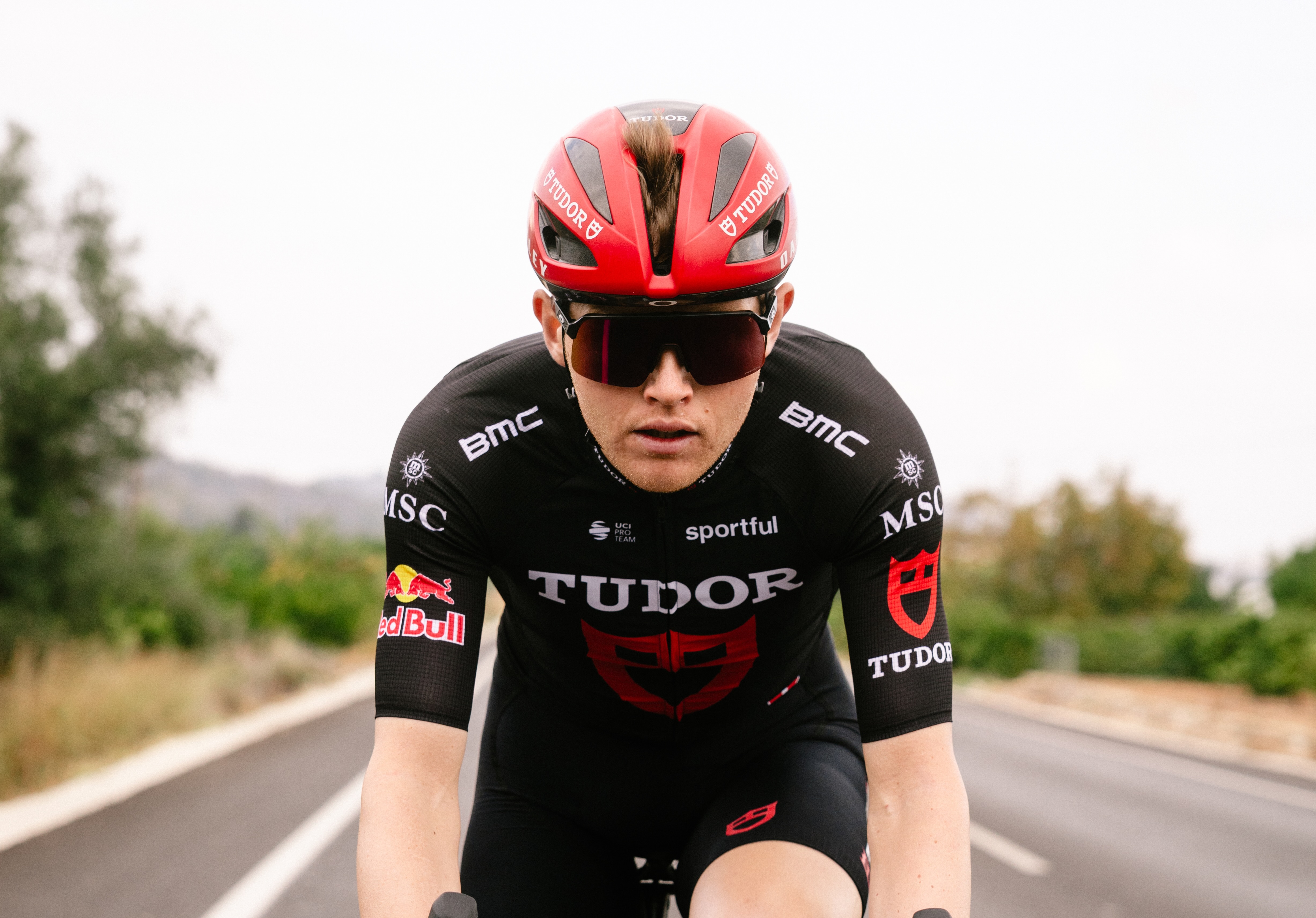Lene Byberg: Rising to the top
Norwegian mountain biker wraps up career-best season as the World Cup number two
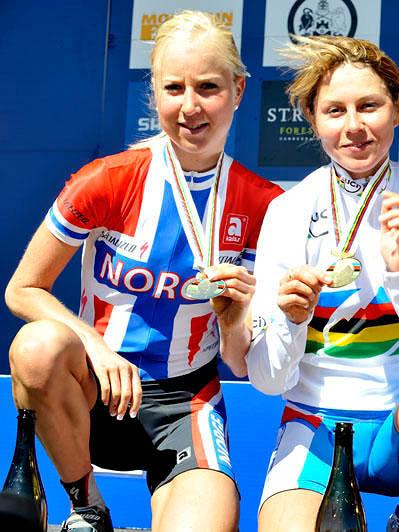
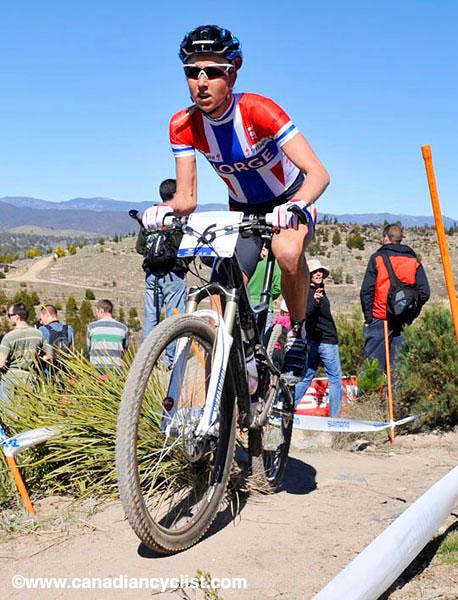
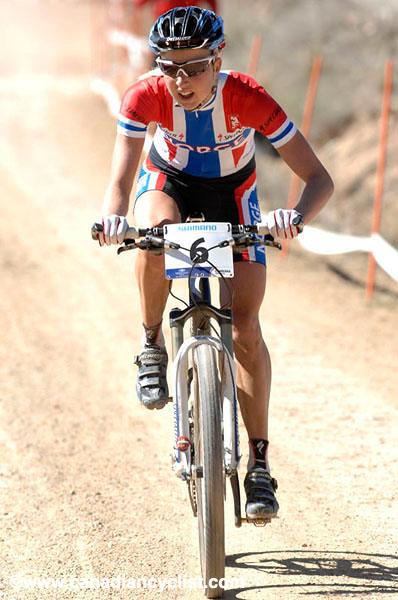
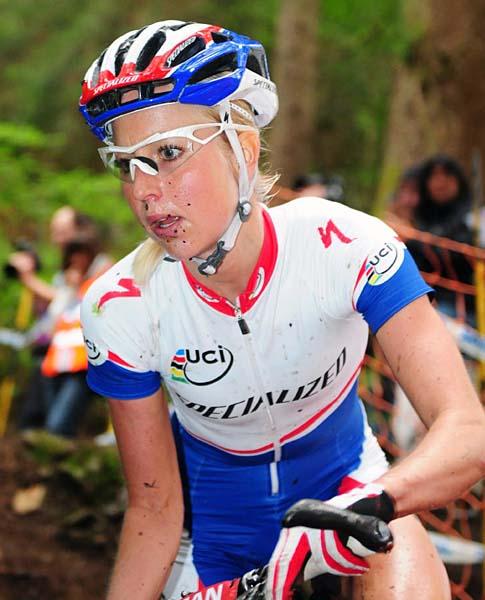
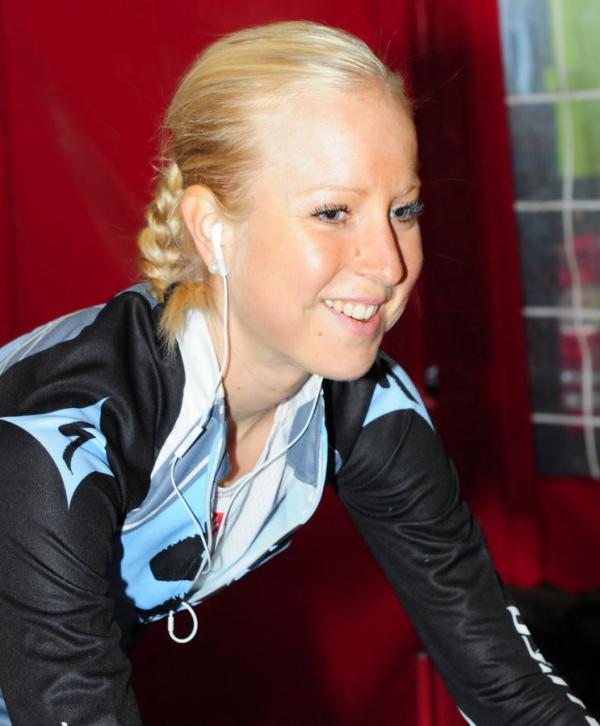
Think of Norwegian mountain bikers, and Rune Høydahl and Gunn-Rita Dahle Flesjaa may come to mind. Add another to that list: Lene Byberg.
Norway's latest mountain biking export has been steadily climbing the elite ranks, and in 2009 she enjoyed her best year yet, winning a silver medal at the mountain bike World Championships and placing in the top four in all but one of the eight World Cup rounds.
It was on a wet, sloppy August day in Bromont, Canada, that Byberg won her first career World Cup cross country event, as she explains.
"It was the perfect Norwegian day. It was technical, slippery and quite cold. The weather was ok when we started. Then it started to rain a lot," said Byberg, who began the race with her almost trademark slow start. She was in the top 10, just barely, at the end of the first lap.
"I got into the front of the race on the second or third lap, and suddenly it was only me and Irina [Kalentieva], and then I dropped Irina on the climb. I felt really good that day. I was flying on the last lap after riding quite strong the whole race." She went into the final lap with about a 40-second gap. Having to defend a lead in a World Cup race was a new situation for her.
"I knew if I could get to the top of the final lap's climb first, I would win," she said. "I was riding with my head. It was easy to blow totally on the climb, and I needed to save some energy in the technical part. I didn't want to make mistakes there."
"It was the first time I knew I could win a World Cup," she said and then went on to do just that. "I surprised myself by being quiet on the bike, and not nervous. I focused on the racing and rode calmly and relaxed."
The latest race content, interviews, features, reviews and expert buying guides, direct to your inbox!
For Byberg, who will turn 27 in November, the race was a huge confidence booster. "I knew that when I won this World Cup, that I could maybe win the worlds or another big race. I showed that I can win. It was very good for my head."
Lene vs Irina, take two
Byberg and Kalentieva found themselves doing battle again, just a few weeks later in Canberra, Australia, at the World Championships, which Byberg led for much of the race until the final half lap when the Russian Kalentieva caught her and then outpaced her to the finish.
"I had a good day, and I took a chance," said Byberg. "My legs were feeling good during warm-up, and the start was good because it was a little flat at first – it didn't go straight uphill."
Byberg raced the open, relatively tree-less, windy, technical course. Unlike many World Cup courses, this worlds course was not all about climbing; instead it featured shorter, steeper uphills, technical singletrack and some flatter gravel road sections.
Kalentieva had suffered technical problems with her chain early in the race and spent most of the rest of it working her way back up. Meanwhile, at the front, Byberg was riding alone in a mentally challenging race on a windy day.
Eventually caught with only 2km remaining, Byberg was initially disappointed to finish second to Kalentieva, who claimed her second world championship title. However, Byberg's previous best worlds finish was eighth in 2007. Last year she was 13th.
"I had no chance at the end. I was not happy crossing the line 30 seconds after her. It was really close. I felt like I had the gold in my hands and then I lost it. "
Time helped her put the race in perspective though. "After the race when I caught my breath and got my head again, I felt differently. Every lap, my splits were the same. I couldn't go any faster - even on the last lap, I was just as fast - though I thought it was slower at the time. Simply put, Irina was 30 seconds faster on the last lap."
The slender Byberg is already looking forward to next year. "I love MSA," she said happily, referring to Mont Sainte Anne, Quebec, Canada, where the 2010 World Championships will be run.
Powering the diesel
Byberg's career has been a little like her racing style which is a little like a diesel engine. More often than not in any given major international race, Byberg starts near the tail end of the top 10 and then steadily works her way up, picking off racer after racer as the laps tick by.
She says the strategy isn't so much deliberate as it is a function of her fitness. "My start depends on what my form is like. In worlds and at the Madrid [World Cup], I was in the front from the beginning, but I do have some problems with the start tempo. Sometimes after you warm up, you have to wait awhile on the start line. It can be hard to go off the start into a climb. I've improved a lot this season with my starts, but it's something I still have to work on.
"If I could stay in the front from the beginning, I'd have more chances to win more races. It's a little bit of morale thing. However, it's better to start slow and go faster and faster than the other way around."
Byberg's diesel engine is certainly consistent. She placed fourth or better at every 2009 World Cup except for Houffalize, in Belgium. "I started the World Cup season with a third place and I finished the season with a second. I'm happy about it.
"Consistency was a goal. My base training was good in the winter. Houffalize was just a bad day. I had to go from South Africa to Sea Otter to Europe [on consecutive weekends]. It was too much. We didn't just the race at Sea Otter, we had a lot to do for [her team sponsor] Specialized. It wasn't a normal week of preparing for the race."
To get her results, Byberg made a few changes to her preparation for the 2009 season. She added a big block of training with no racing, including skipping local races, the European championship, and Norway's national championship in the middle of the season. She even did a road stage race with the French National Team.
Contract anxiety
Despite her consistent good results, Byberg, who has ridden for three seasons with Specialized Factory Racing, is uncertain of her plans for 2010. As of this interview, she did not have a contract for next season.
"My contract ends with 2009. I hope I will get a new contract and continue on the team. I'm quite happy where I am."
Referring to life as a pro cyclist, Byberg said, "It's harder for female cyclists. For the past three years, I've been the only woman on the team which has been cut in size to fewer total riders." Byberg noted that trend applied across the discipline, meaning it has become harder overall to secure the fewer total spots on teams.
Some male mountain bikers get around this by switching over to road racing, but Byberg has no plans to do the same – even though she raced the Olympic Games on the road in Athens in 2004.
"I like road racing, but I love mountain bike racing." She also added, "It seems like mountain biking is more fair for women than road racing. On the road, there are generally not the same teams and the same races for men and women. For us mountain bike female pros, we always race on the same day as the men and on the same courses. It feels more fair - like there is more respect for women in mountain biking."
Local support
Byberg grew up in Stavanger, Norway, and got into mountain bike racing because of her dad and brother, who were in a local club. "They managed to get me on a bike for fun. Then I got addicted to it," said Byberg who was playing handball at the time.
"I wanted to try something new. I felt like I found my sport. I started slow, for fun in the beginning with local racing. Then I did some national races. This was in 1999.
"I always wanted to be outdoors training. I've never had trouble going outdoors and training alone," said Byberg, who excels at racing in all conditions, perhaps because she spends so much time training in the varied conditions of Norway. "I live on the west coast of Norway and we don't have snow there so you can ride your bike all winter. Its climate is like Britain.
"There is a lot of rain where I live in Sandnes. It might be 10 degrees [Celsius] in the summer. I'm used to rain and muddy conditions," she said. "You get tired of wet in the winter, but you get stronger and you learn to handle those conditions for when you race them." Byberg does travel to warmer climates for up to two months in the winter. For the past two years, she's spent January in South Africa.
Despite being a nation of just 4.5 million people, Norway has produced two top elite female mountain bikers in the past decade: Byberg and Norway's most famous female mountain biker and multi-time World Champion Gunn-Rita Dahle Flesjaa hail from the same town. Byberg says she's appreciated Dahle Flesjaa's help along the way as the older rider has often provided guidance.
"When I started, I didn't know about her. She was already a star though," said Byberg. "Gunn-Rita became important to me when I got onto the national team and my results got better. She got me local sponsors and helped me out. I travelled with her to training camps. She took care of me and showed me how you have to train and how hard you have to work to become a world champion."
Though the sport is popular in her country, Byberg wants to see more young girls and women involved. "We need more girls' and women's clubs. We have some talent coming up. They are 14-15-16 now, and it's hard to make that decision to continue with the sport or study. I hope they keep riding. This is something I'd like to spend more time on - getting more women into the sport."
Next year
Assuming she can find a contract, Byberg plans to focus again on World Cup and World Championship races in 2010. She has one more race in 2009, the Roc D'Azur, then will take a holiday before resuming training.
The 2010 World Cup features just six rounds (instead of eight in 2009), which may change the preparation of some riders. "Six World Cups is not a lot, but that means you can do other races in Europe or America. There will always be a lot of travelling and racing anyway," she said.
"I think it's a good thing to end the major race season with the World Championships. It'll be like on the road - you conclude with the World Championships." Byberg is hoping she'll be carrying a gold medal home from Canada, but she knows anything can happen.
"You're never sure how you'll feel until you get out there or how you'll be on any given day. You never know when you'll have that perfect day," she said. "That's what is so interesting about sport."
2009 Results
- World Cup – Pietermartizburg, South Africa, 3rd
- World Cup – Offenburg, Germany, 3rd
- World Cup – Houffalize, Belgium, 12th
- World Cup – Madrid, Spain, 3rd
- World Cup – Mont Sainte Anne, Canada, 4th
- World Cup – Bromont, Canada 1st
- World Cup - Champery, Switzerland, 3rd
- World Cup – Schladming, Austria, 2nd
- World Championships – Canberra, Australia, 2nd
- Final World Cup standings, 2nd
2008 Results
- World Cup – Bromont, Canada, 3rd
- World Cup – Mont Sainte Anne, Canada, 4th
- World Cup – Fort William, Scotland, 4th
- World Cup – Offenburg, Germany, 7th
- World Cup – Madrid, Spain, 8th
- World Cup – Schladming, Austria, 11th
- World Cup – Houffalize, Belgium, 11th
- World Championships – Val di Sole, Italy, 13th
Sue George is an editor at Cyclingnews. She coordinates all of the site's mountain bike race coverage and assists with the road, 'cross and track coverage.
